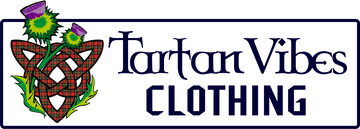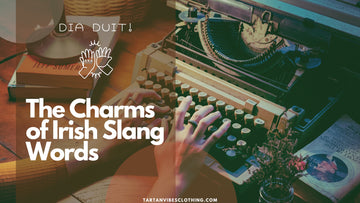Table of Content
1 . Introduction to Irish Slang Words
1.1 Definition of Irish Slang Words

Irish slang refers to a set of colloquial expressions, words, or phrases that are characteristic of the Irish language or culture. Irish slang words can include words borrowed from the Irish language (Gaeilge), as well as creative and playful expressions that may not be immediately understood by those unfamiliar with the local vernacular. Slang can vary across different regions of Ireland, and it evolves over time, incorporating new words and expressions.
It's important to note that while some Irish slang may be widely recognized, there can also be regional variations and differences in usage. Additionally, slang is often context-dependent, and its meaning may not be immediately apparent to those outside the cultural or linguistic context in which it is used.
1.2 Importance of Slang in Cultural Communication
Slang holds a crucial role in cultural communication by fostering informal connections, enabling expressiveness, and reflecting cultural identity. It serves as a dynamic and creative component of language, breaking down barriers and creating a more relaxed atmosphere in social interactions. Through the use of slang, individuals can inject humor, playfulness, or emphasis into their communication, making it more engaging and relatable.
Moreover, slang acts as a cultural identifier, expressing shared experiences and values within a community. Its adaptability to social changes ensures that language remains vibrant and relevant, reflecting the evolving nature of culture. While slang enhances communication within specific cultural or subcultural groups, its effective use requires an understanding of context and audience sensitivity.
2. Understanding Irish Slang

2.1 Origins and Evolution of Irish Slang Word
The origins and evolution of Irish slang words are deeply rooted in the annals of Celtic history. Rooted in the ancient migrations to Ireland, these linguistic gems have weathered the storms of time, absorbing influences from Latin through Christianization. The impact of youth culture, media, and globalization has accelerated the evolution of Irish slang words, introducing new expressions and reflecting contemporary trends.
In addition, regional variations further enrich the linguistic landscape, reflecting local dialects and traditions. Social changes and the dynamic nature of language contribute to the ongoing development of Irish slang, showcasing its adaptability in expressing cultural identity in a changing world.
2.2 Significance in Everyday Conversations
3. Common Irish Slang Words and Phrases
3.1 Common Irish Slang Words:

- "Craic" - Pronounced "crack," this term refers to fun, entertainment, or a good time. One of the most well-known Irish phrases. Example: What’s/where’s the craic?
- "Banjaxed" - Broken or damaged. If something is not working properly, it might be described as "banjaxed." . Example: The chair is banjaxed
- "Gobsmacked" - Utterly astonished or surprised. If someone is shocked or amazed, they might say they are “gobsmacked.”
- "Yoke" - A versatile term that can refer to any object or thing. It's often used when the specific name of something is forgotten or unknown. For instance, “Hand me that yoke over there.”
- "Grand" - This word is widely used to mean "good" or "fine.", most often used as a reply to ‘How are you?’, ‘How are you feeling?’, or being told of a decision. One of the most common Irish expressions. Example: We will meet you there – “Grand”; Dinner will be in 10 minutes – “Grand”
- “Mucker” - A term of endearment or a way to refer to a friend. For example, “He's a good mucker.”
- “Jacks” - Slang for the bathroom or toilet. For example, “I'll be back in a minute, just going to the jacks.”
- “Feck” - A milder version of a certain four-letter word, "feck" is often used to express mild frustration or surprise. It's a common alternative to more explicit language.
3.2 Common Irish Slang Phrases

Irish Greetings:
- Dia duit - This is said in place of greeting someone with “Hello”. The literal translation of the phrase is God and Mary be with you. Generally, one responds with Dia is Mhuire agus Pádraig duit—God and Mary and St. Patrick be with you.
- Conas atá tú? - How are you?
- Tá áthas orm bualadh leat - Pleased to meet you.
- Fáilte! - This is one of the more famous Gaelic words in the United States. It means: welcome!
- Maidin mhaith! - Good morning!
Irish Farewells:
- Slán - Good-bye.
- Slán leat - Good-bye, said by one who leaves.
- Slán agat - Good-bye, said by one who stays.
- Slán go fóill - I will see you later.
- Tabhair aire - Stay safe and take care.
- Bíodh lá maith agat - Have a good day or more literally, Be day good at you!
4. Usage in Social Settings

4.1 Slang in Pub Culture:
4.2 Slang in Friendly Conversations:
4.3 How Slang Enhances Cultural Connection:
Irish slang serves as a potent tool for enhancing cultural connection, both within Ireland and among those interested in Irish culture. By incorporating slang into conversations, individuals express not only linguistic fluency but also a deeper connection to the shared experiences, humor, and colloquial expressions unique to Irish culture.
Whether in local communities or among the Irish diaspora, the use of slang becomes a way of affirming cultural identity and maintaining a connection to the distinctiveness of Irish linguistic heritage. Slang serves as a bridge between generations, linking the past and present, and contributing to a vibrant cultural tapestry that transcends geographical boundaries. It's a living, evolving language that keeps Irish culture alive in everyday discourse.
5. Challenges and Nuances of Irish Slang Words

5.1 Potential Misinterpretations for Non-Natives:
Irish slang words, with its rich history and cultural context, poses challenges for non-natives attempting to navigate its nuances. Some Irish expressions and slang words may carry meanings that aren't immediately apparent to those unfamiliar with Irish culture. For instance, the term "craic" might be misconstrued as a typo for "crack" by non-natives, missing its intended meaning of fun or good times.
Additionally, the use of humor and wordplay in Irish slang can lead to potential misinterpretations, as the underlying cultural references may not be immediately understood. This creates a dynamic where non-natives may find themselves decoding not just words but the cultural connotations embedded in the slang.
5.2 Contextual Appropriateness in Conversations:
Navigating the contextual appropriateness of Irish slang words is essential in conversations. While slang contributes to the informal and friendly atmosphere, it's crucial to recognize when its usage may be inappropriate, especially in more formal or professional settings. Some slang words, even if harmless in one context, might carry different connotations in other situations.
Striking a balance between expressing camaraderie and ensuring that slang is suitable for the audience and setting is a nuanced aspect of communication. This sensitivity to context becomes especially important for non-natives, as they may not have the same intuitive grasp of when certain slang terms are best employed or avoided. Understanding the social dynamics and appropriateness of Irish slang ensures effective and respectful communication in various settings, preventing potential misunderstandings or unintended offenses.
6. Social Media and Irish Slang Words

6.1 Influence of Slang on Online Communication:
Irish slang has seamlessly integrated into the realm of social media, becoming an influential component of online communication. Platforms like Twitter, Facebook, and Instagram provide spaces where users express themselves using colloquialisms, creating a virtual extension of the everyday conversations peppered with slang.
The brevity of social media posts often lends itself well to the concise and expressive nature of slang, allowing users to convey sentiments, reactions, and humor effectively. For instance, phrases like "having the craic" or "feeling grand" frequently appear in status updates and comments, contributing to a sense of shared linguistic identity within the online Irish community. The informal and playful nature of slang enhances the online experience, fostering a virtual environment that mirrors the casual camaraderie found in face-to-face interactions.
6.2 Popular Hashtags and Trends:
Irish slang words plays a prominent role in shaping popular hashtags and online trends, becoming a dynamic force in digital culture. Hashtags often incorporate slang terms, providing a unique blend of linguistic creativity and cultural resonance. Trends like #CraicIs90 or #SoundAsAPound gain traction, with users employing these phrases to express positive sentiments or share enjoyable experiences.
The adaptability of slang makes it particularly conducive to creating memorable and shareable content. Online communities leverage these trends to build a sense of online camaraderie and to engage in humorous or reflective exchanges that resonate with a broad audience. The use of Irish slang words in hashtags not only reinforces cultural identity but also showcases the ability of language to evolve and thrive in the digital age, transcending traditional boundaries and reaching a global audience.
7. Preservation of Irish Slang Words

7.1 Efforts to Preserve Traditional Slang
Efforts to preserve traditional Irish slang are integral to maintaining the linguistic heritage of the country. Language enthusiasts, cultural organizations, and even local communities recognize the importance of documenting and safeguarding traditional slang terms that might be at risk of fading away. Initiatives include oral history projects, where older generations share their knowledge of colloquial expressions with younger individuals.
Additionally, there are ongoing efforts to compile dictionaries or glossaries of Irish slang, creating a valuable resource for future generations to understand and appreciate the linguistic richness embedded in everyday conversations. These preservation endeavors aim not only to safeguard the language but also to foster a sense of continuity and cultural identity.
7.2 Modern Adaptations and Additions
While preserving traditional slang is crucial, language is dynamic, and modern adaptations and additions contribute to the living nature of Irish slang. The inclusion of new words and expressions reflects the evolving nature of society, technology, and cultural influences. Social media, pop culture, and global trends have introduced contemporary slang into the Irish lexicon.
These modern adaptations seamlessly blend with traditional terms, creating a dynamic linguistic landscape that resonates with both older and younger generations. Language enthusiasts and cultural advocates actively engage with these developments, recognizing that the preservation of Irish slang is not solely about conserving the past but also embracing the vitality of language as it continues to evolve in response to contemporary influences. In this way, the preservation of Irish slang is a delicate balance between honoring tradition and embracing the ongoing evolution of language.
Conclusion
Frequently Asked Questions
What do the Irish call a girl?
There are various Irish slang phrases for girls, including lass, bure, or colleen.
What's the difference between "craic" and "craic agus ceol"?
"Craic agus ceol" literally translates to "fun and music." It's often used to describe a good time with music and entertainment, emphasizing a lively atmosphere.
Is "sláinte" just an Irish cheers?
Yes, exactly! "Sláinte" is the Irish word for health, and it's commonly used as a toast when raising a glass. So, when you say "Sláinte!" you're wishing everyone good health.
What is Irish slang for embarrassing?
‘Scarlet’ is one way to describe being embarrassed. For example, Ah, I was scarlet’. ‘Skint’ is also some Northern Irish slang for embarrassed.
What is Irish slang for a hug?
In the Irish language, the word “barróg” simply means “hug” or “embrace”.











